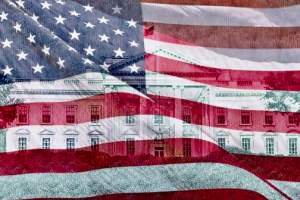
China is finally starting to panic about deflation.
In the long term, this is a good thing. It will allow the country to reverse the nasty downtrend that it is experiencing. In the short term, not so much. In fact, this deflationary panic raises some real questions.
The People’s Bank of China (PBoC) recently announced a quarter-point cut to its 5-year loan prime rate, bringing it down to 3.95%. This signals a potential shift in the central bank’s approach to tackling China’s real estate crash.
Why Deflation Is Potentially a Bad Thing
Historically, adjustments to the loan prime rates have been a tool for the PBoC to manage economic growth, inflation, and to some extent, currency valuation. Reducing the 5-year loan prime rate could potentially lower the cost of borrowing for long-term loans, which is particularly relevant for the real estate sector.
We all know the real estate market in China has suffered big time, with major developers facing liquidity crises and a general slowdown in property sales. The decision to cut the 5-year loan prime rate could provide a much-needed impetus for this sector by making mortgages more affordable and encouraging investment in property.
However, the effectiveness of this measure depends on other factors, like an increase in consumer confidence and spending capacity. The truth is China has had a hard time improving sentiment following its Covid-19 lockdowns.
This consumer malaise haunts the nation to this very day. There has been a decline in per-person consumption, even during periods traditionally associated with higher spending, such as the recent Lunar New Year. This trend reflects weaker consumer activity, which is a critical engine for economic growth. And with the year-over-year inflation rate currently standing at -0.8%, there’s no real clear reason for this to change.
If China’s consumers expect lower prices in the future, they won’t spend now, further entrenching a crisis in the economy.
The Bottom Line
If indeed there is a panic in China, we should see far more stimulus coming, not just from the monetary side, but the fiscal side as well. While the rate cut and policy shift by the PBoC has potential implications for the real estate market and broader economic activity, its effectiveness will depend on consumer confidence, inflationary dynamics, and global economic conditions.
The coming quarters will be critical in assessing the impact of these policy adjustments and whether additional measures will be necessary to steer the world’s second-largest economy toward sustainable growth. Either way, it seems China is now starting to wake up and take action. But is it too late?
On the date of publication, Michael Gayed did not hold (either directly or indirectly) any positions in the securities mentioned in this article. The opinions expressed in this article are those of the writer, subject to the InvestorPlace.com Publishing Guidelines.






